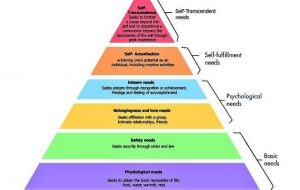Cognitivism
Cognitivism is the branch of psychology that studies the cognitivist perspective and tries to understand cognition. Rooted in Gestalt psychology and the work of Jean Piaget, cognitivism has been a very important part of psychology since 1960; this theory contrasts with behaviorism, in which psychologists concentrate their studies on the behavior that can be observed. Modern research links cognitivism with the idea that people process information in the same way computers do, following a set of specific rules; therefore, it is often related to studies in artificial intelligence. In addition, cognitivism has influenced education, as studies of how people learn, shed a light on how to teach more effectively.
What is cognitivism?
Cognitivism is the branch of psychology that studies and focuses on different mental processes, including how people perceive, think, remember, learn, solve problems, and direct their attention to one stimulus more than another.
What does cognitivism study?
Cognitivism is in charge of studying cognition, that is, the different mind processes that are related to knowledge. Therefore, we can say that cognitive psychology studies the mechanisms that people use to obtain knowledge, and all the steps or methods included within it using the senses. It seeks to understand the way in which people understand the reality that surrounds them from the transformation of sensory information.
Characteristics of cognitivism
Its main characteristics are:
- Knowledge for cognitivism is functional.
- Through it, you can develop plans and set goals, decreasing negative consequences.
- It focuses on the mental processes of learning and how these are stored in memory.
- They have a research base for the realization of scientific works.
- Different environmental conditions are part of the learning process.
- Explanations, examples and demonstrations form a guide for proper learning.
- Knowledge must be meaningful.
- The student is helped to organize and relate new information with the knowledge that he already has.
- The subject is seen as an active processor of information through the recording and organization of information.
Backgrounds
The first studies that had a merely cognitive approach were carried out in the fifties, presented as a theory that sought to replace behaviorism theory. All the ideas of these thinkers had in common attention, perception, memory, intelligence, language and thought.
History
The first approaches to this subject arose practically from the time of Descartes, with his paradigm “cogito ergo sum“, which means “I think, therefore I exist“, which explains to us, in other words, that we must think first in order to exist. Historically, this theory lies between behaviorism and constructivism, of which it is the precursor. Its development took place between the 1950s and 1960s, with a greater influence in the 1970s. It has its roots in England when studies on perception, thought and cognitive processes began.
Representatives of cognitivism
Their main representatives were:
- Jean Piaget: said that mental development from birth to adulthood is progressive, going from minor to major, and this governs the development of intelligence.
- Jerome Bruner: psychologist and pedagogue from the United States who developed the theory of learning by discovery, which encouraged students to acquire their knowledge by themselves.
- David Ausubel: Creator of significant learning, explained that learning was the incorporation of new information to the cognitive structure of people facilitating their learning.
- Robert Gagné: created eight different levels of learning.
- Howard Gardner: I believe the theory of multiple intelligences against the paradigm of a single intelligence. He said that people had different kinds of intelligence.
Principles
The principles of cognitivism are as follows:
- It sees the subject as an active processor of stimuli and this processing determines our behavior.
- Learning is developing skills to understand reality that will generate appropriate responses to various contexts.
- It studies observable and unobservable
- It explores the following processes: memory, perception, memory, forgetting, transference and assimilation. Significant learning is achieved through assimilation.
- To develop cognitive processes, cognitivism allows students to be aware of their own cognitive processes, allowing them to be more independent and reflective.
- It considers the individual as an active being and builder of his own knowledge.
Contributions
Its main contributions have been to education, especially in the area of teaching and learning. It has been able to contribute with special and essential learning skills such as memory and reasoning. It has also contributed to the attempt to predict and control behavior in an empirical and experimental manner, the planning and organization that should be given to the teaching process, the search for different reinforcements to achieve educational objectives and the evaluation of students according to objectives.
Applications
In education has been very important because educators must perceive the student as an active processor of information and not simply as receivers of education, with this, must take into account a number of aspects related to the student to test the ability of the same when performing mental operations.
Importance of cognitivism
Cognitivism is important because it teaches us to observe the mind processes in order to obtain knowledge. Through it, we can observe and study the different mechanisms to achieve a better education, which helps to develop plans and set goals, minimizing the chances of experiencing negative consequences.
Some examples
An eight-month-old baby who, from the moment he was born, acquired knowledge of his environment, from the recognition of the voice and face of his parents, to the sounds around him, little by little he learned to distinguish shapes, colors, flavors and sounds that he associated with different objects, people and situations. All this thanks to cognitive development. The baby did not lose his old knowledge when he obtained new ones, the old ones were assimilated, organizing and balancing the new ones giving rise to a greater adaptation to his environment.
How to cite this article?
Briceño V., Gabriela. (2019). Cognitivism. Recovered on 3 January, 2025, de Euston96: https://www.euston96.com/en/cognitivism/










